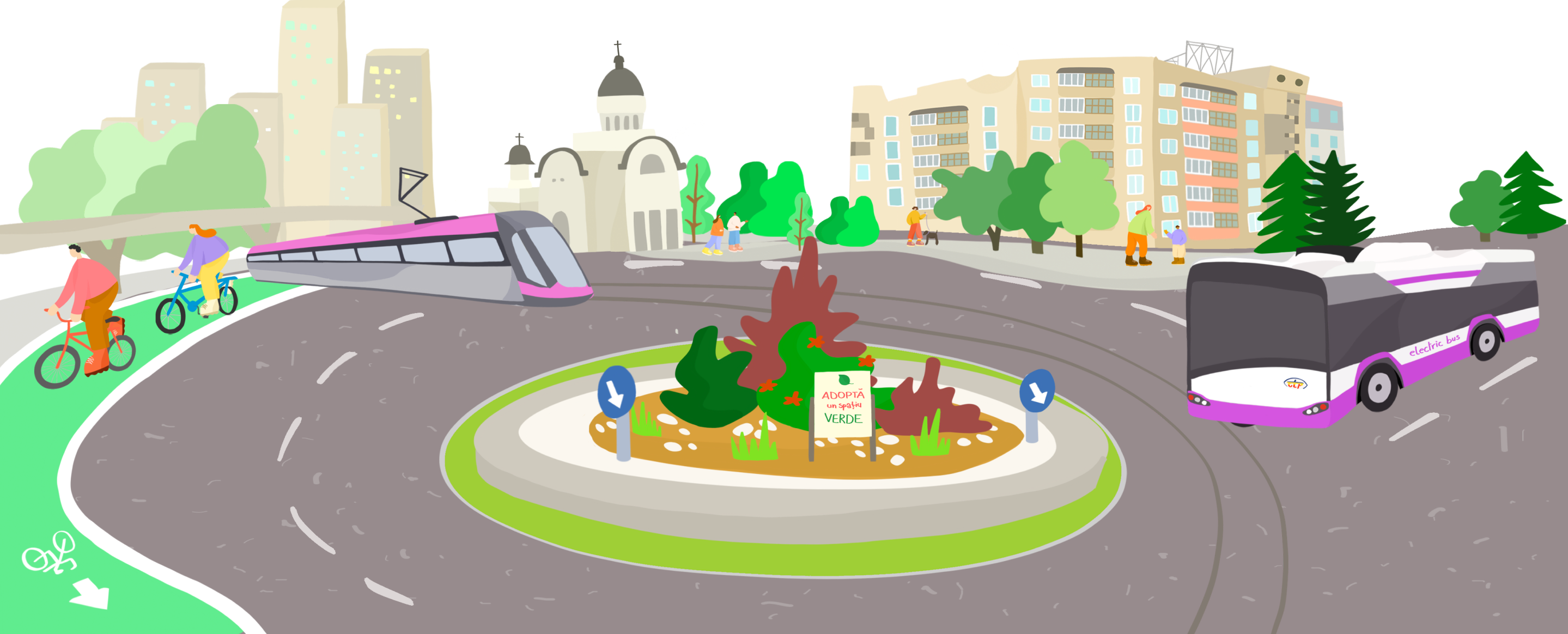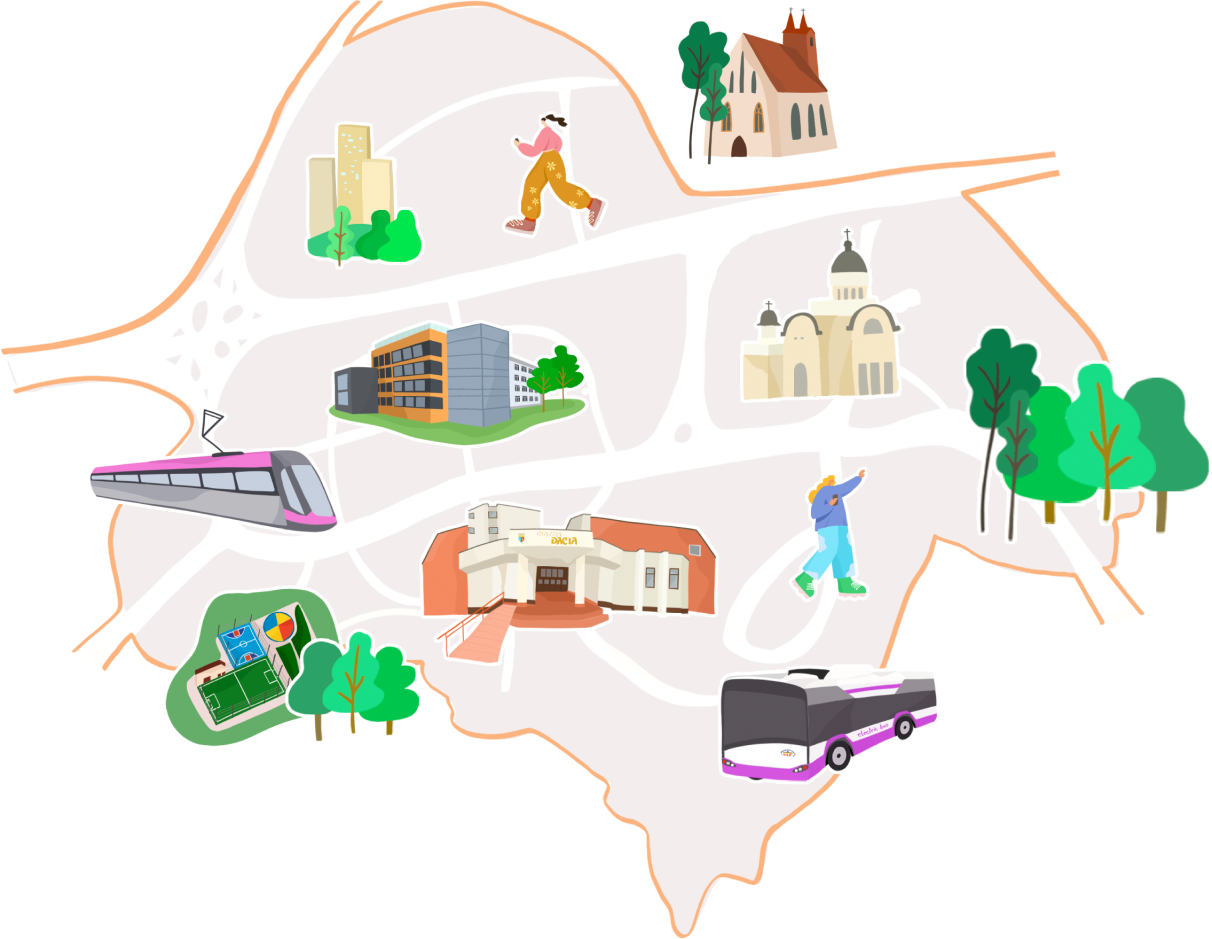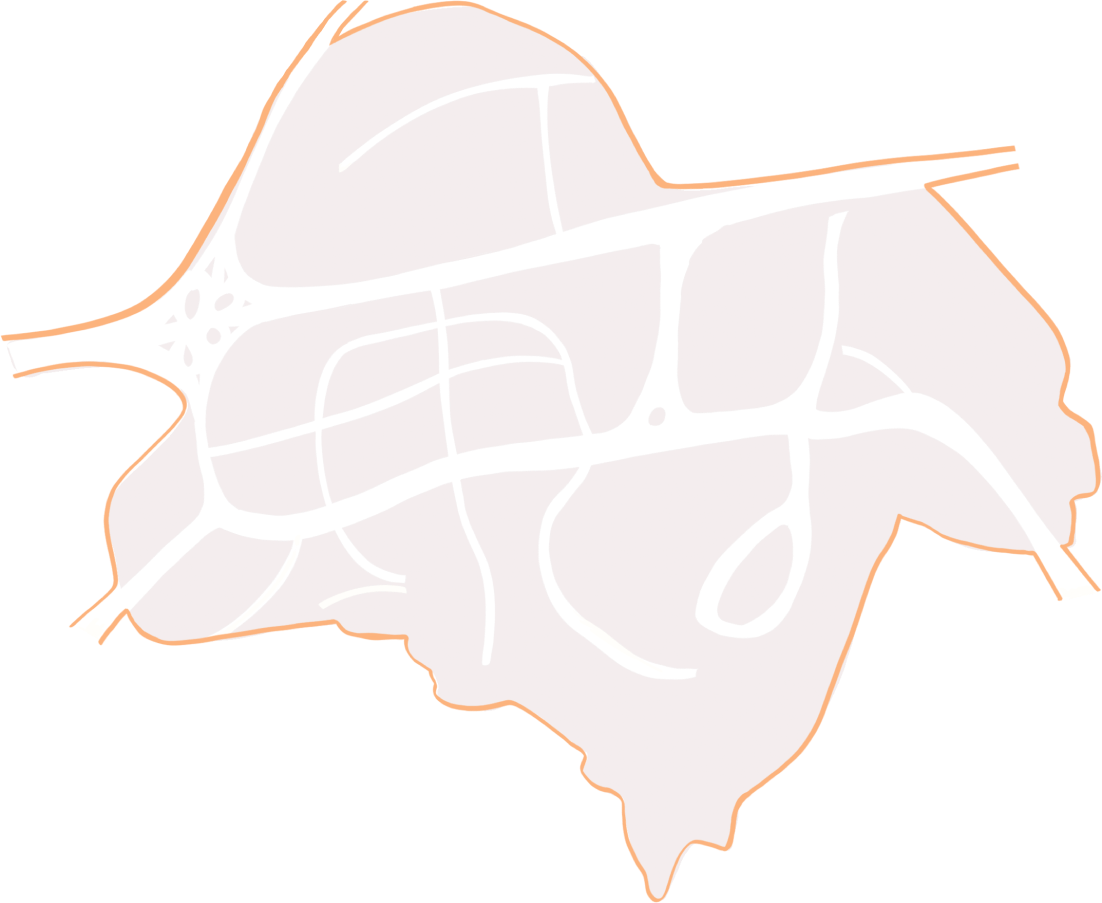
PROGRAM

Context
EU Missions are a new way to bring concrete solutions to some of our greatest challenges.
They have ambitious goals and will deliver tangible results by 2030 by putting research and innovation into a new role, combined with new forms of governance and collaboration, as well as by engaging citizens. EU Missions are a novelty of the Horizon Europe research and innovation programme for the years 2021-2027.
4%
of the EU’s land area occupied by cities.
75%
of EU citizens are city inhabitants.
65%
cities’ consumption of the world’s energy.
70%
of the world’s CO2 emissions.
The importance of climate-neutral and smart cities
Cities play a pivotal role in achieving climate neutrality by 2050, the goal of the European Green Deal. They take up only 4% of the EU’s land area, but they are home to 75% of EU citizens. Furthermore, cities consume over 65% of the world’s energy and account for more than 70% of global CO2 emissions.
Since climate mitigation is heavily dependent on urban action, we need to support cities in accelerating their green and digital transformation. In particular, European cities can substantially contribute to the Green Deal target of reducing emissions by 55% by 2030 and, in more practical terms, to offer cleaner air, safer transport and less congestion and noise to their citizens.
Aims of the Mission
The Cities Mission will involve local authorities, citizens, businesses, investors as well as regional and national authorities to:
As foreseen in its implementation plan, the Cities Mission takes a cross-sectoral and demand-led approach, creating synergies between existing initiatives and basing its activities on the actual needs of cities.
Program
The project supports the 112 European cities known as the Mission Cities in drastically reducing their greenhouse gas emissions to achieve climate neutrality. The EU Cities Mission supports the European Green Deal in building a low-carbon, climate-resilient future through research and innovation.

About Pilot Cities Programme
The Pilot Cities Programme supports European cities to test and implement innovative approaches to rapid decarbonization, working across thematic areas and functional silos in support of systemic transformation. The Programme seeks to address all urban systems contributing to climate-neutrality, including mobility, energy systems, and the built environment, material and resource flows, natural areas, cultural/social/financial/institutional systems, and accessible public spaces.
53 Pilot Cities in 21 countries are testing and implementing innovative solutions to rapidly and drastically reducing their emissions, paving the way for a climate–proof future in European cities. A clear set of innovative solutions ready to be implemented, scaled and/or replicated will be identified by the end of the pilot. This could include new business models, policy initiatives, governance innovation, funding or financing models, and replication or scaling strategies.

This first cohort of Pilot Cities, selected in February 2023, is supported with €32 million in grants funded by Horizon 2020. Cities receive such support in the amounts of €0.5 million, €1 million, or €1.5 million to deploy and scale up R&I and systemic solutions.
Cluj Napoca's Pilot City













The main purpose of this pilot program is to generate a comprehensive blueprint for transition to climate neutrality in a pilot apartment block neighbourhood, and develop a scalable model that can inform similar interventions in other neighbourhoods.
Making the transition to climate neutrality by 2030 in Cluj-Napoca, will require smart, integrated, and comprehensive solutions for apartment block neighbourhoods. Apartment block neighbourhoods are also more difficult spaces to deal with, as the number of stakeholders that have to actively be engaged is quite large, including all the residents in the area, active companies, and civil society groups. Dealing with public and commercial buildings may require simpler solutions.
Buildings are responsible for 78,3% of total GHG emissions in the city, followed by transport (21,3%) and public lighting (0,4%). Residential buildings are the largest GHG emitters and also the toughest challenge when it comes to interventions, as they require the engagement of a large number of stakeholders (from citizens to local companies and civil society groups) and multi-pronged approaches. Around 77% of residents in Cluj-Napoca live in multi-family apartment buildings, mostly built during Communism, at low construction standards and with poor energy performance. The largest such neighborhood is Mănăștur district with +80 000 inhabitants (1/4 of permanent resid. in the city), over 90% living in blocks of flats.
buildings are responsible for 78% of total GHG emissions in the city
of residents live in multi-family apartment buildings
transport is responsible for 21,3 of total GHG emissions in the city
inhabitants live in Manastur, most of them in blocks of flats
While thermal insulation programs for apartment blocks have been undertaken, the complicated bureaucratic procedures for public interventions meant that only 5% of the existing stock was rehabilitated with EU, national or local budget funds.
An additional 50% was rehabilitated by household associations, and while the funds mobilized by private citizens is impressive (estim. €175 mil.) the quality was overall poor. Most works were not subject to energy audits or construction permits issued by the authorities, and the contractors and materials were usually chosen by owners based on lowest price. This resulted in a modest increase in the energy performance of most buildings.
The pilot activities proposed by Cluj-Napoca, which will result in stellar models for transforming high-density neighbourhoods into climate neutral districts.
The activities proposed will create ready-to-use tools which cities across Europe can use, with a focus on the neighborhood level. Such an example is the innovative Climate Neutrality Digital Twin which is being initiated in this project. Moreover, the project aims to support behavior change of citizens and encourage their involvement in all climate-related efforts, starting from understanding the barriers which prevent individuals from doing so.

Redesigning public spaces with multi-sectoral planning for neighborhoods.

Tackling Urban Heat Islands (UHIs) with smart city solutions and inclusive design for vulnerable groups.

Holistic building interventions for energy efficiency and renewable energy generation.

Enhancing quality of life to discourage suburban migration, incorporating innovative energy and architectural solutions.

Forming a Local NZC Coalition to engage stakeholders in goal achievement.

Developing a platform to scale up project outcomes to other neighborhoods and cities in the EU and beyond.
VALUES
The key principles that will guide the Municipality of Cluj-Napoca as it implements its Green Deal objectives & Net Zero Cities targets
Ensuring that all parties involved are held responsible for meeting their commitments and achieving their goals in reducing emissions and mitigating the effects of climate change.
Ensuring that information is readily available and communicated effectively to the public, stakeholders, and other relevant parties.
Willingness to consider and adopt innovative solutions, technologies, and methodologies that can help achieve climate goals more effectively.
Encouraging and investing in cutting-edge research and development, and adopting innovative technologies and practices, to achieve long-term climate goals.
Engaging stakeholders - citizens, NGOs, private companies, universities, and local administration in the implementation of the Climate Action Plan to ensure that it meets their needs and priorities.
Building strong partnerships and collaborations with a wide range of actors, including government, civil society, academia, and the private sector, to mobilize resources and expertise towards meeting climate goals.
Ensuring that all parties involved are held responsible for meeting their commitments and achieving their goals in reducing emissions and mitigating the effects of climate change.
Ensuring that the Climate Action Plan is integrated into the city's overall systems and processes and is driven by the needs and priorities of citizens and stakeholders.

2026 All rights reserved. Municipality of Cluj-Napoca. Cookies Policy Privacy Statement


The grant is funded by Horizon 2020, the EU framework programme for research and innovation preceding the current Horizon Europe programme. The funding will complement the support provided already by the City Advisors and the Consortium partners of NetZeroCities. The Pilot Cities Programme is a crucial part of accomplishing the objectives of the EU 100 Cities Mission, which aims for these cities to accelerate climate-neutrality by 2030.